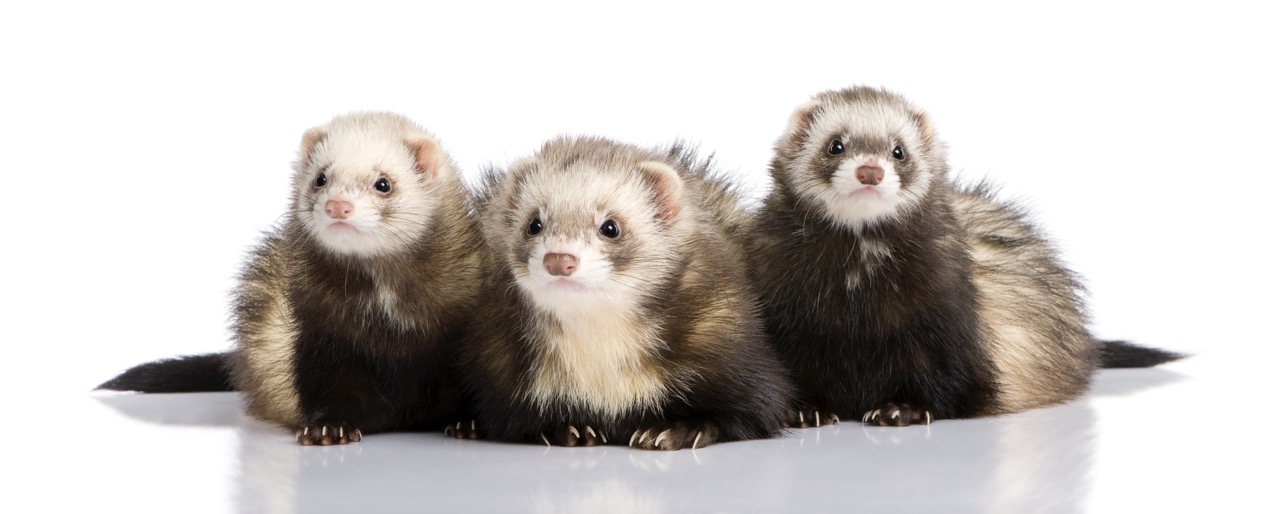Caring for ferrets with special needs can be a rewarding but challenging experience. These delightful creatures often require specific environmental considerations to ensure their comfort and well-being. Selecting the right cage is crucial, as it serves as their primary habitat and safe haven. In this article, we will explore the unique needs of special needs ferrets, identify key features to consider when choosing a cage, recommend top models suited for their requirements, and provide tips for creating an accommodating environment.
Understanding the Unique Needs of Special Needs Ferrets
Special needs ferrets may have various conditions, such as physical disabilities, chronic illnesses, or behavioral issues. Each of these conditions requires a tailored approach to their care. For instance, ferrets with mobility issues may struggle to navigate traditional cages with high levels or narrow spaces. Therefore, understanding their specific limitations is essential for providing the right support and fostering a safe living environment.
Moreover, ferrets are social animals and thrive on interaction. Special needs ferrets may require additional socialization to help them feel secure and engaged. Their cage should not only accommodate their physical needs but also promote mental stimulation and prevent loneliness. This could involve incorporating features such as tunnels, ramps, and toys that are easily accessible.
Lastly, the health status of special needs ferrets often demands closer monitoring. Regular veterinary check-ups and a watchful eye on their behavior can help catch any changes in health. Thus, a suitable cage design should also allow for easy access to the ferret for observation and care, enhancing both the owner’s ability to provide care and the ferret’s overall quality of life.
Key Features to Look for in a Ferret Cage
When selecting a cage for special needs ferrets, several key features should be prioritized. First and foremost, accessibility is critical. The cage should have multiple levels that are easy to navigate, with ramps instead of ladders for ferrets that may have difficulty climbing. Additionally, a larger door or removable panels can help facilitate easier handling of the ferret, making routine care less cumbersome.
Another important aspect is safety. The cage should be constructed from durable, non-toxic materials, with small enough spacing between bars to prevent escapes or injuries. Additionally, the base should be solid and stable to accommodate any special needs that may make balance challenging. Rounded edges and secure latches are also essential for preventing accidents.
Finally, ventilation is a crucial consideration. Ferrets are sensitive to heat and humidity, so proper airflow is vital for their comfort. Look for cages that offer adequate ventilation while maintaining a secure environment. It’s also beneficial if the cage can easily be cleaned, as maintaining hygiene is essential for any ferret, especially those with health issues.
Top Recommended Cages for Special Needs Ferrets
A highly recommended option for special needs ferrets is the Ferret Nation Cage by MidWest Homes. This cage features multiple levels, ramps for easy access, and a spacious design that allows ferrets to move around freely. The large doors make for easy cleaning and interaction, making it a suitable choice for ferrets requiring frequent monitoring.
Another excellent choice is the Critter Nation Cage, which is similar to the Ferret Nation but offers additional features such as adjustable shelves and a removable base. This cage provides flexibility in accommodating ferrets of different sizes and mobility levels. Its design ensures that ferrets have ample space to explore and play without feeling confined.
Lastly, the PawHut 3-Tier Ferret Cage is a fantastic budget-friendly option. It is designed with easy-access ramps and multiple entry points, making it a suitable choice for ferrets with mobility challenges. Its compact design still allows for ample room to play and rest, while the sturdy construction ensures safety and durability.
Tips for Creating a Comfortable Environment for Ferrets
Creating a comfortable environment for special needs ferrets extends beyond just choosing the right cage. Ensure that their living space is enriched with toys, climbing structures, and soft bedding to provide comfort and stimulation. Soft materials can help ferrets with mobility challenges navigate their environment more easily, while interactive toys can keep them engaged mentally.
Maintaining a consistent temperature is essential. Because ferrets are sensitive to extreme heat or cold, be sure to place the cage in a climate-controlled area. Avoid direct sunlight that can cause overheating, and consider using cooling mats or blankets to help regulate their temperature. Additionally, ensure that the cage is placed away from drafts or heavy foot traffic, as this can cause stress.
Lastly, establish a routine that includes regular playtime outside of the cage, as well as interaction with their owner. Special needs ferrets often require more attention and care, so spending quality time with them not only strengthens your bond but also allows you to assess their health and emotional well-being. Incorporating a variety of activities can help keep their spirits high and foster a happy, healthy life.
Choosing the best cage for ferrets with special needs involves careful consideration of their unique requirements. By understanding their specific needs, identifying key features in a cage, and implementing thoughtful environmental enhancements, you can create a safe and nurturing habitat that promotes their well-being. Remember, the goal is to support their health, happiness, and quality of life, allowing these charming creatures to thrive under your care.










